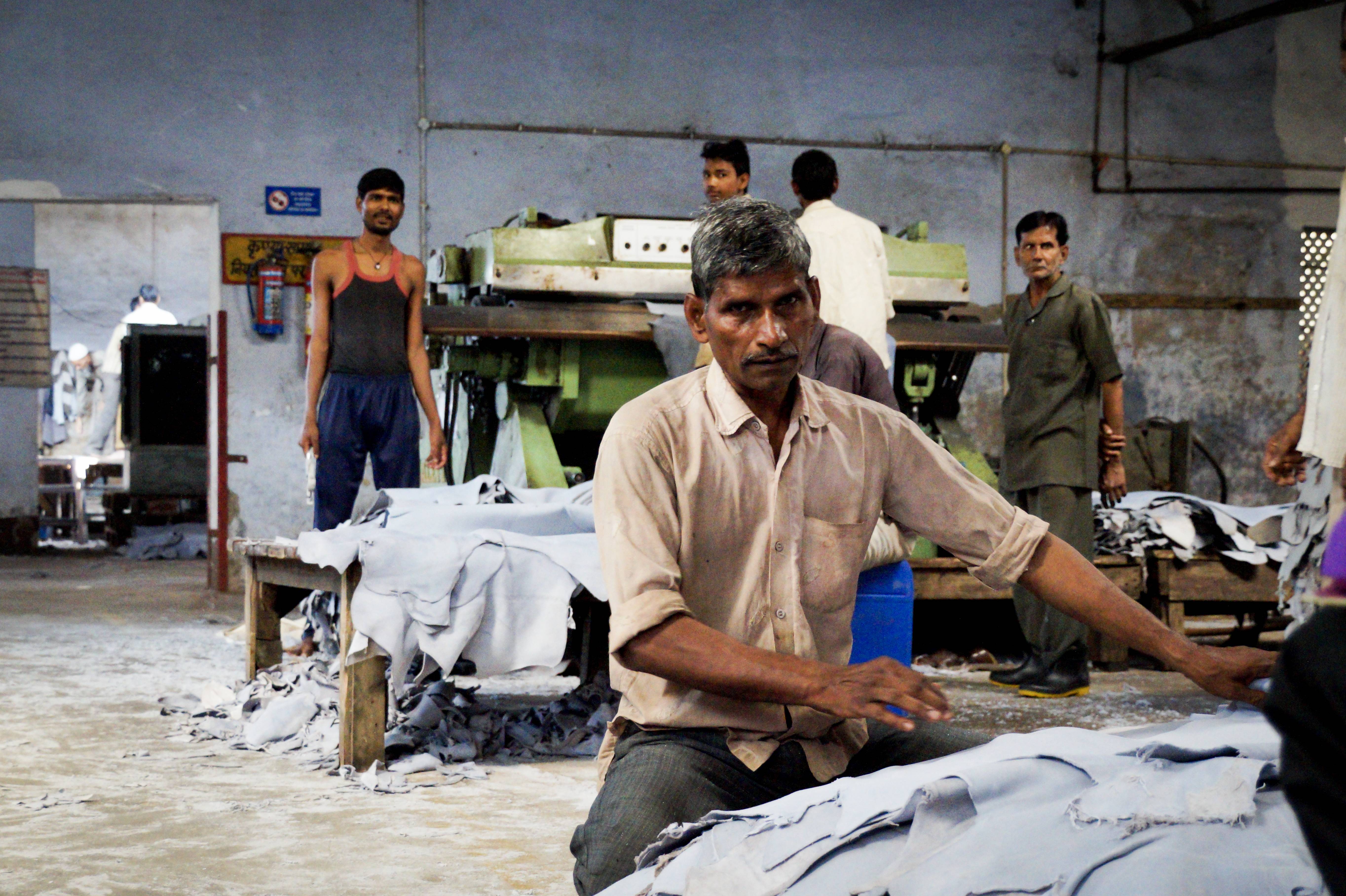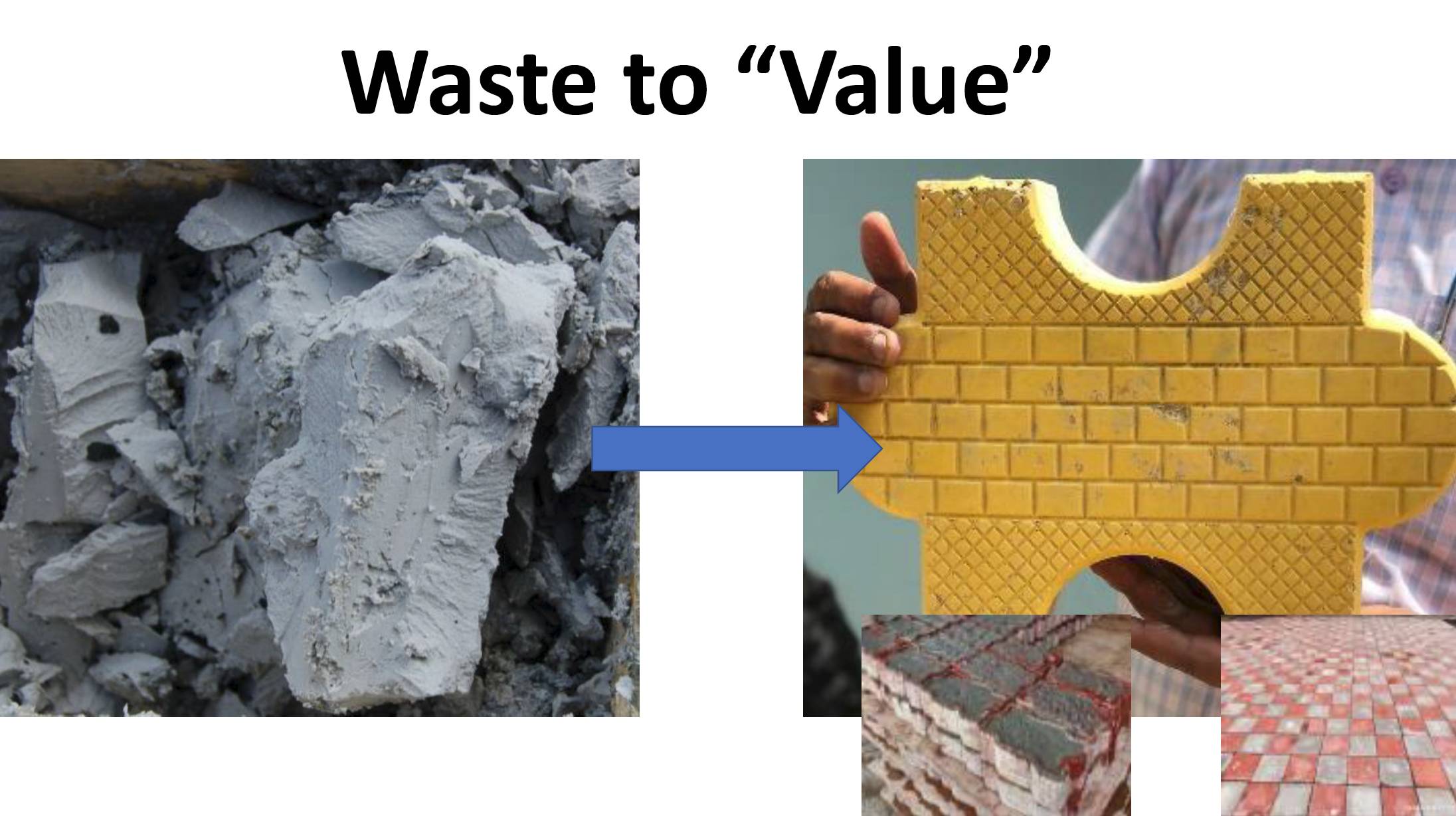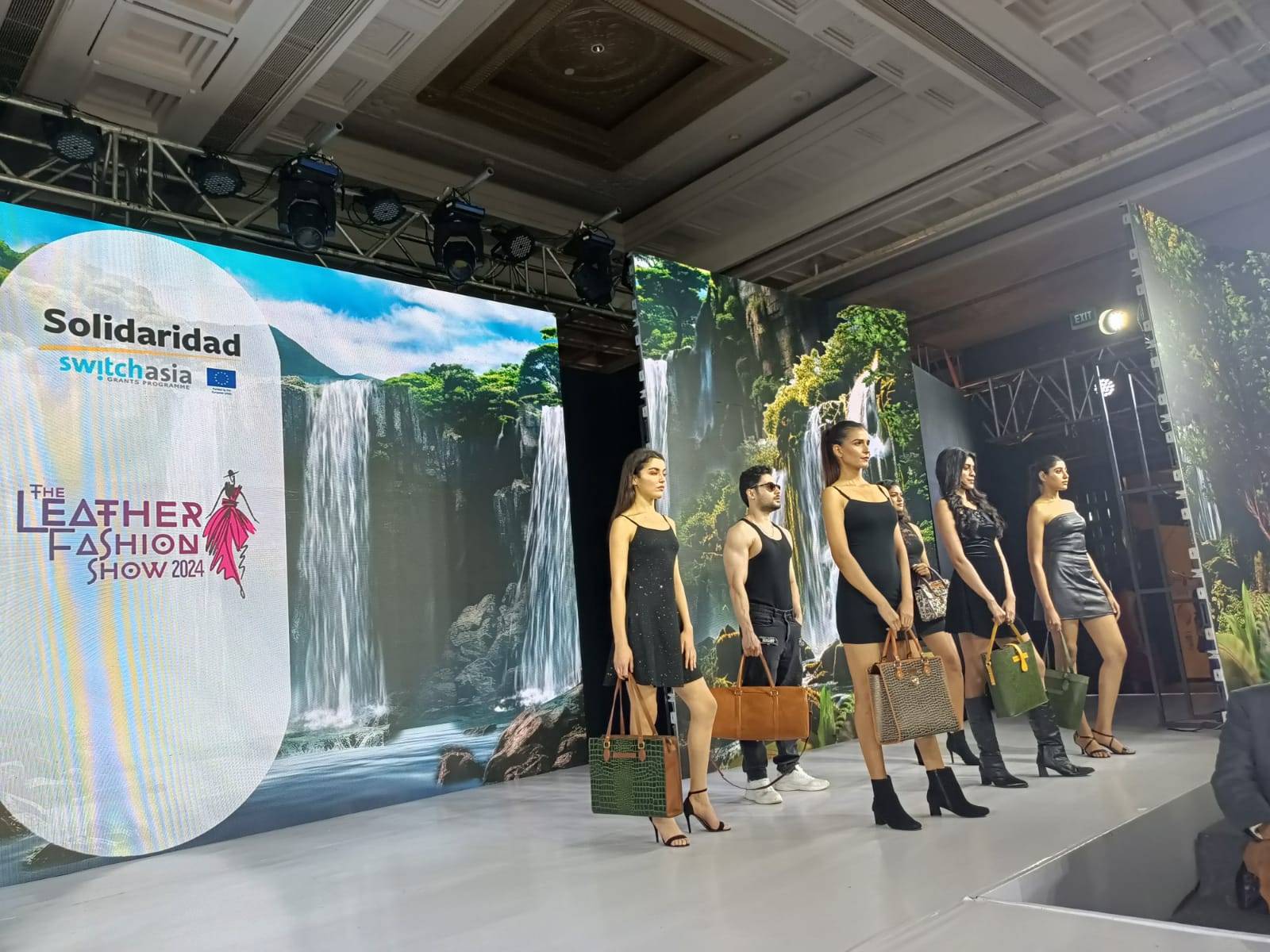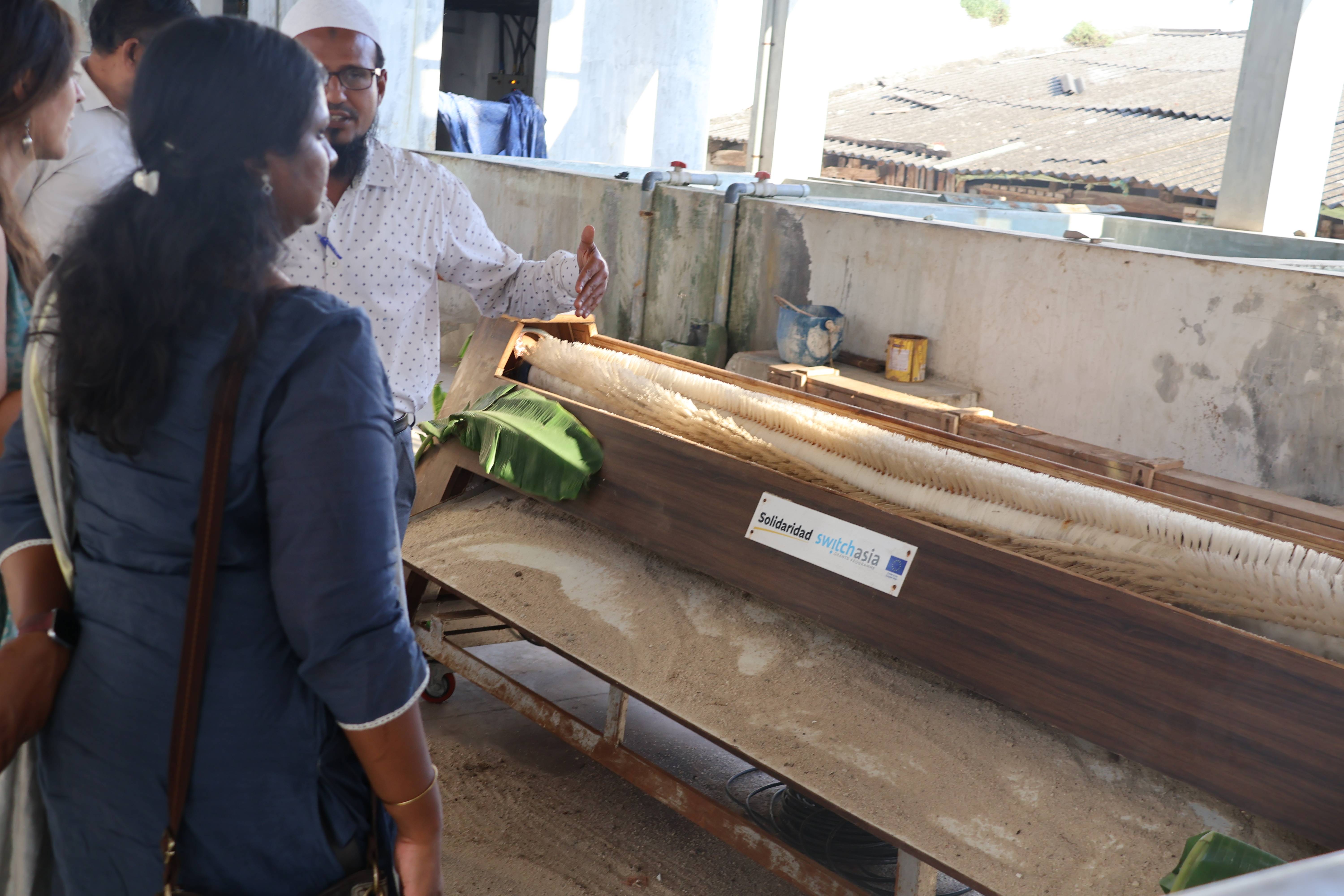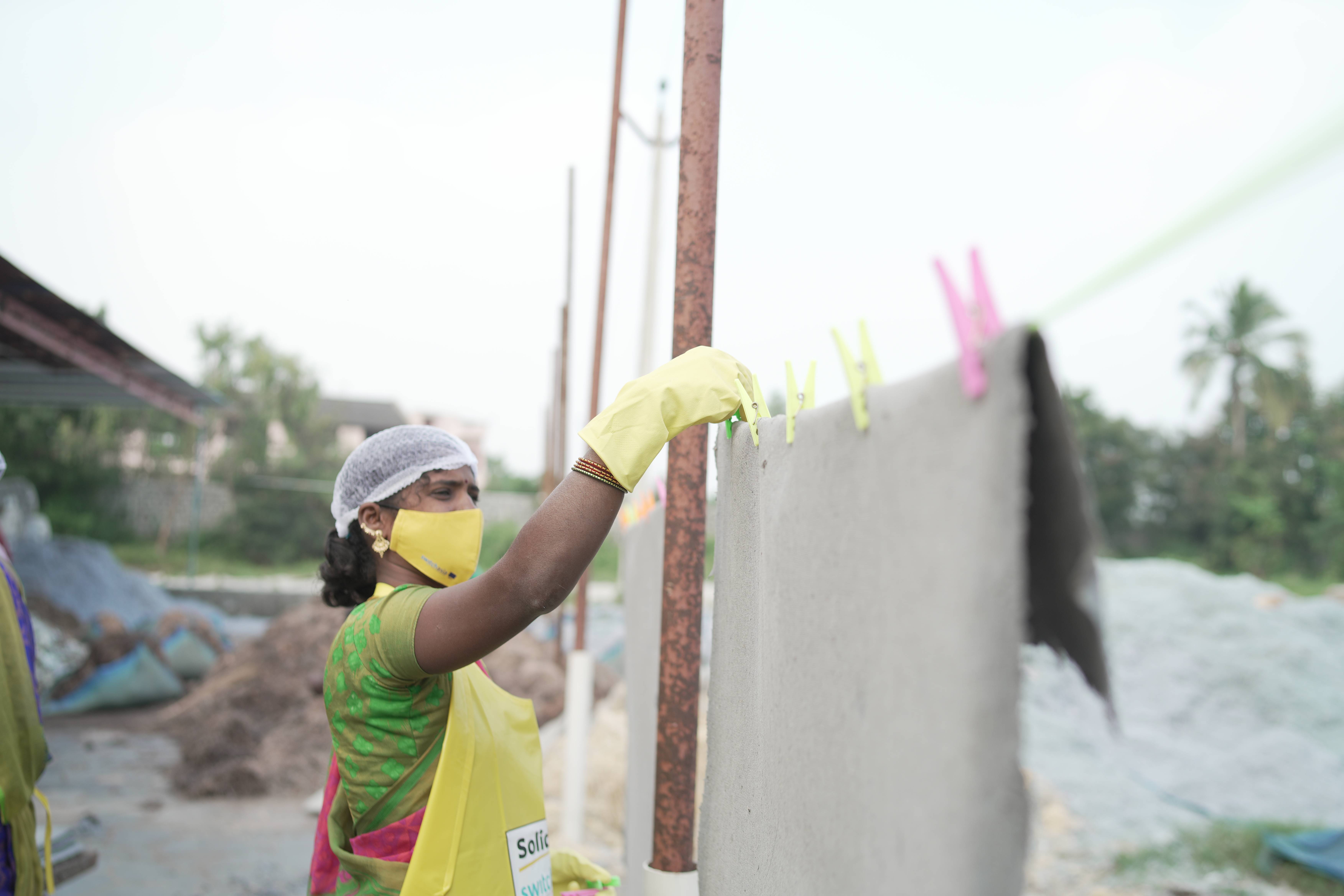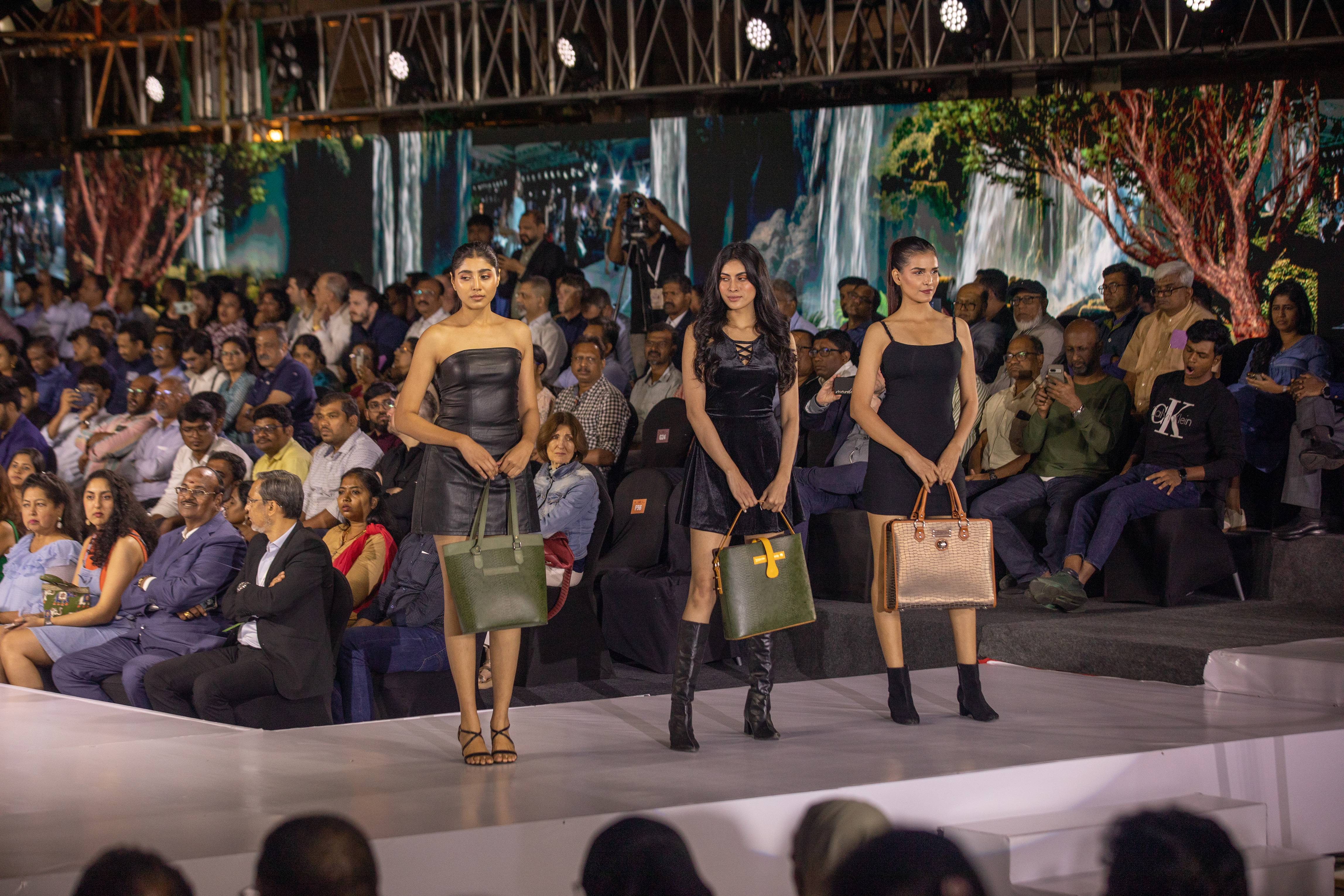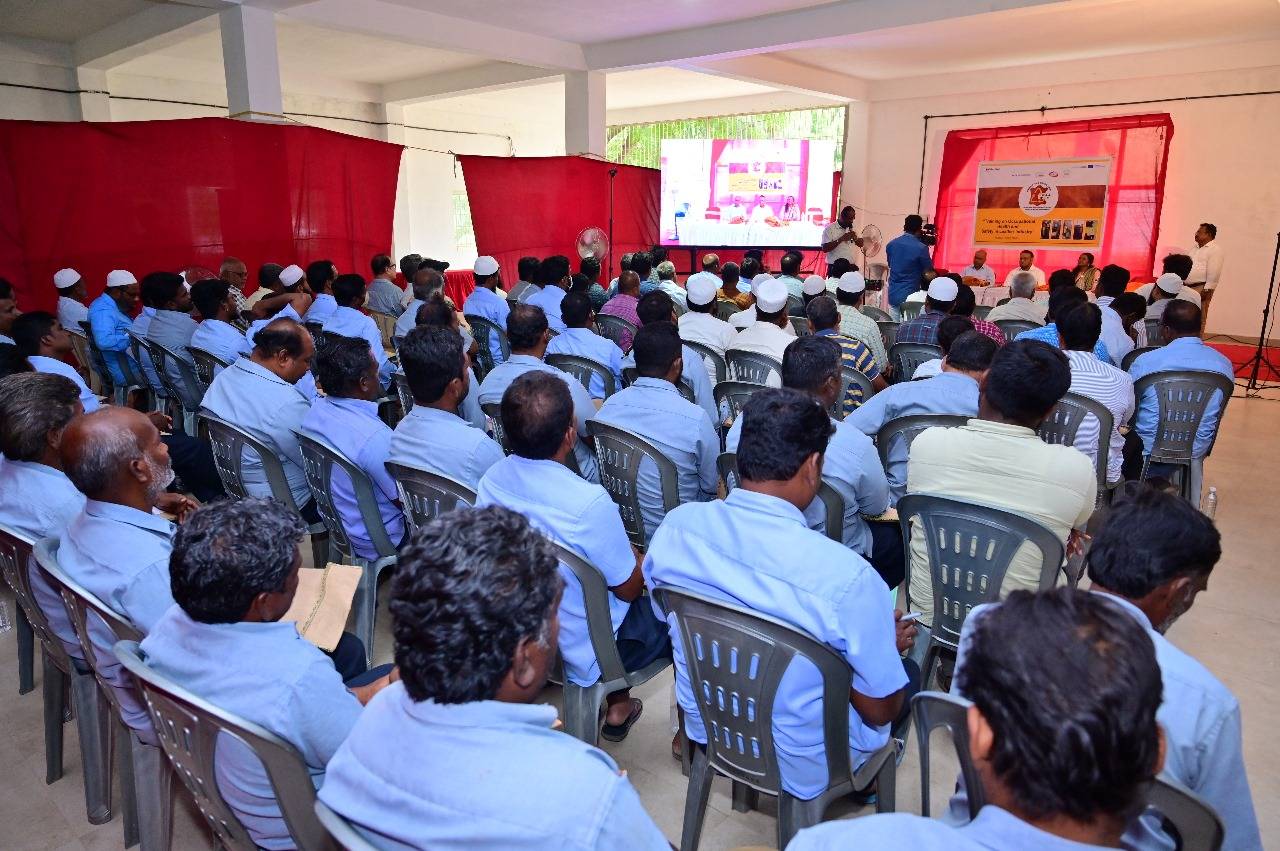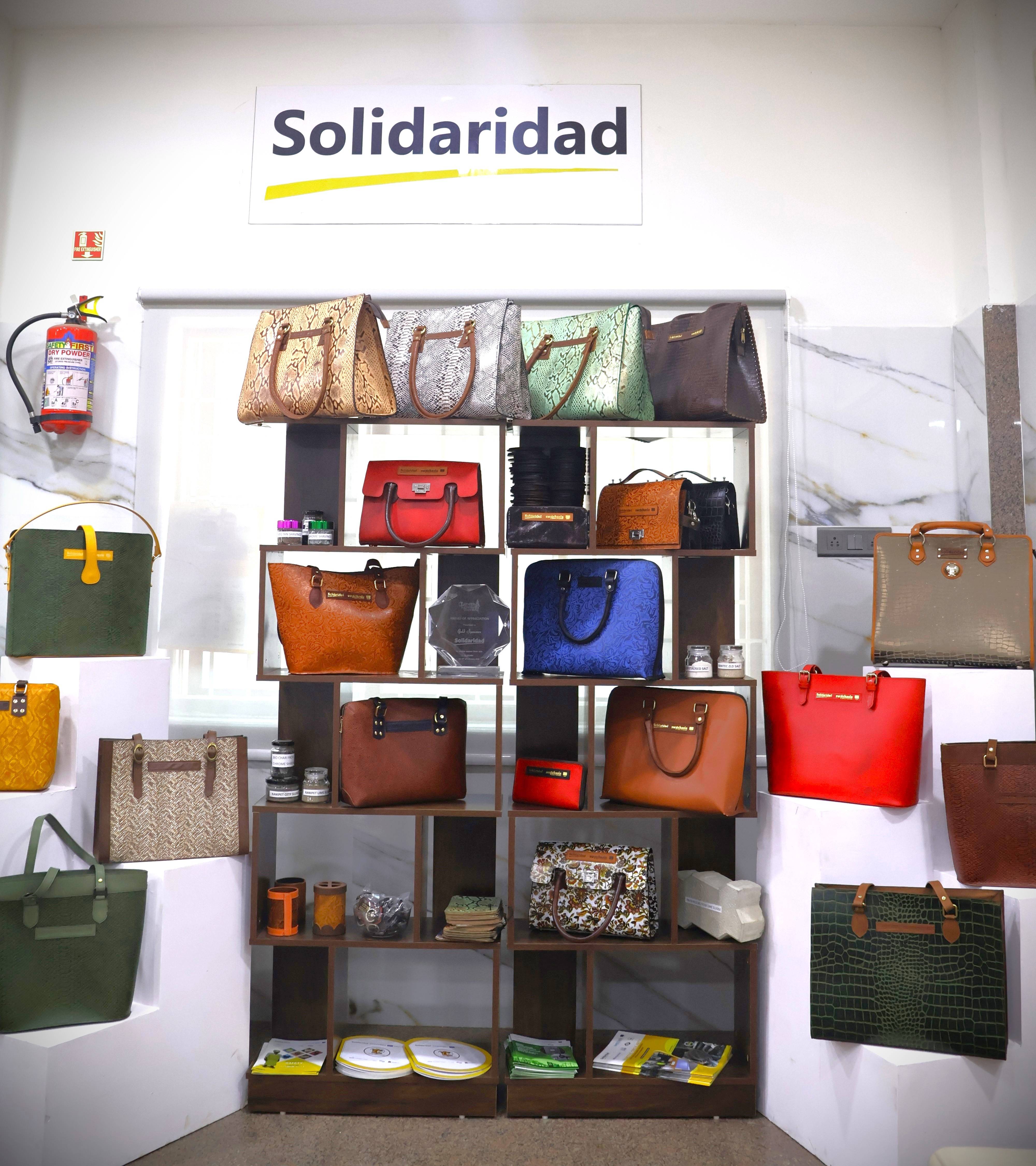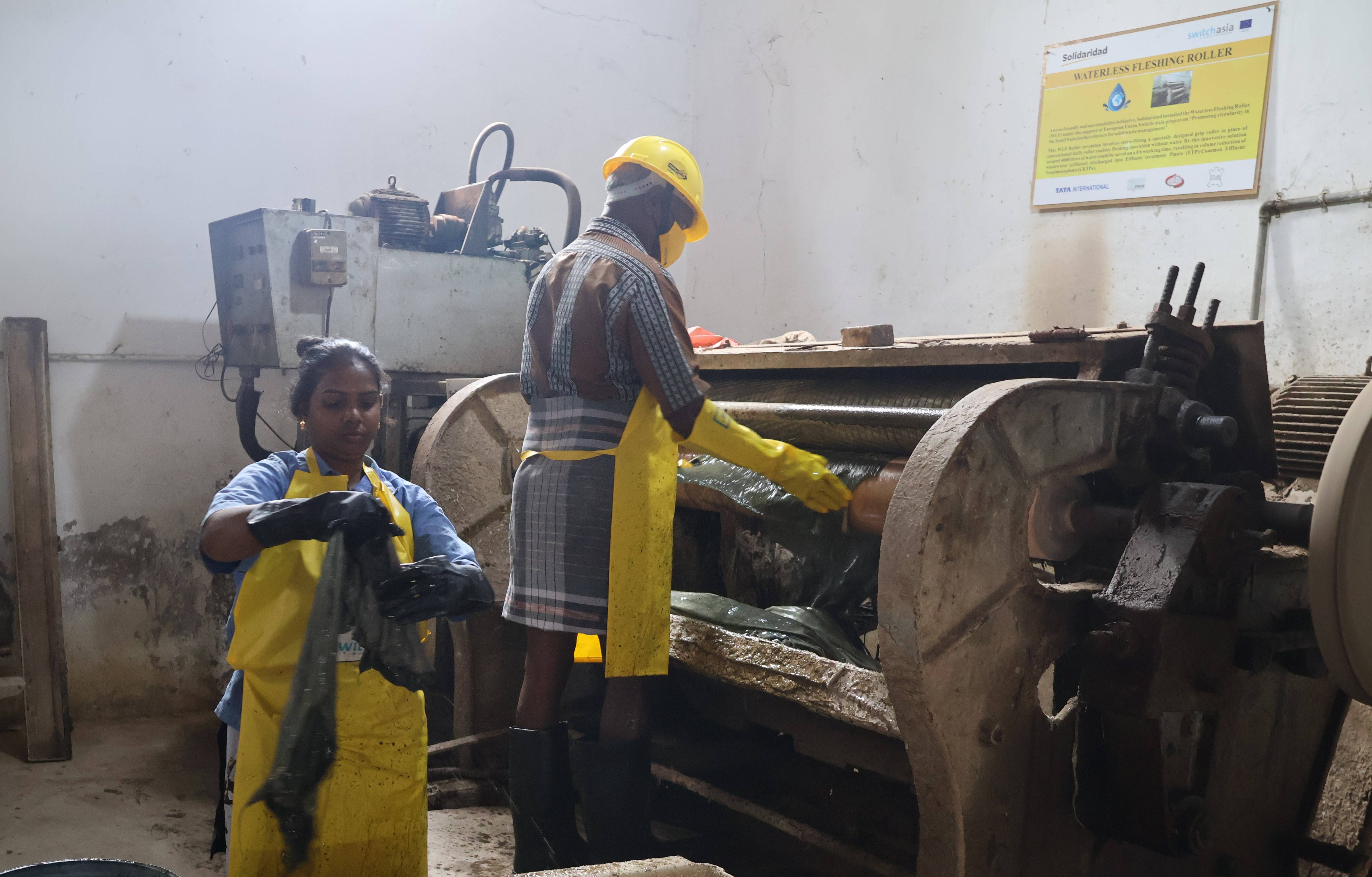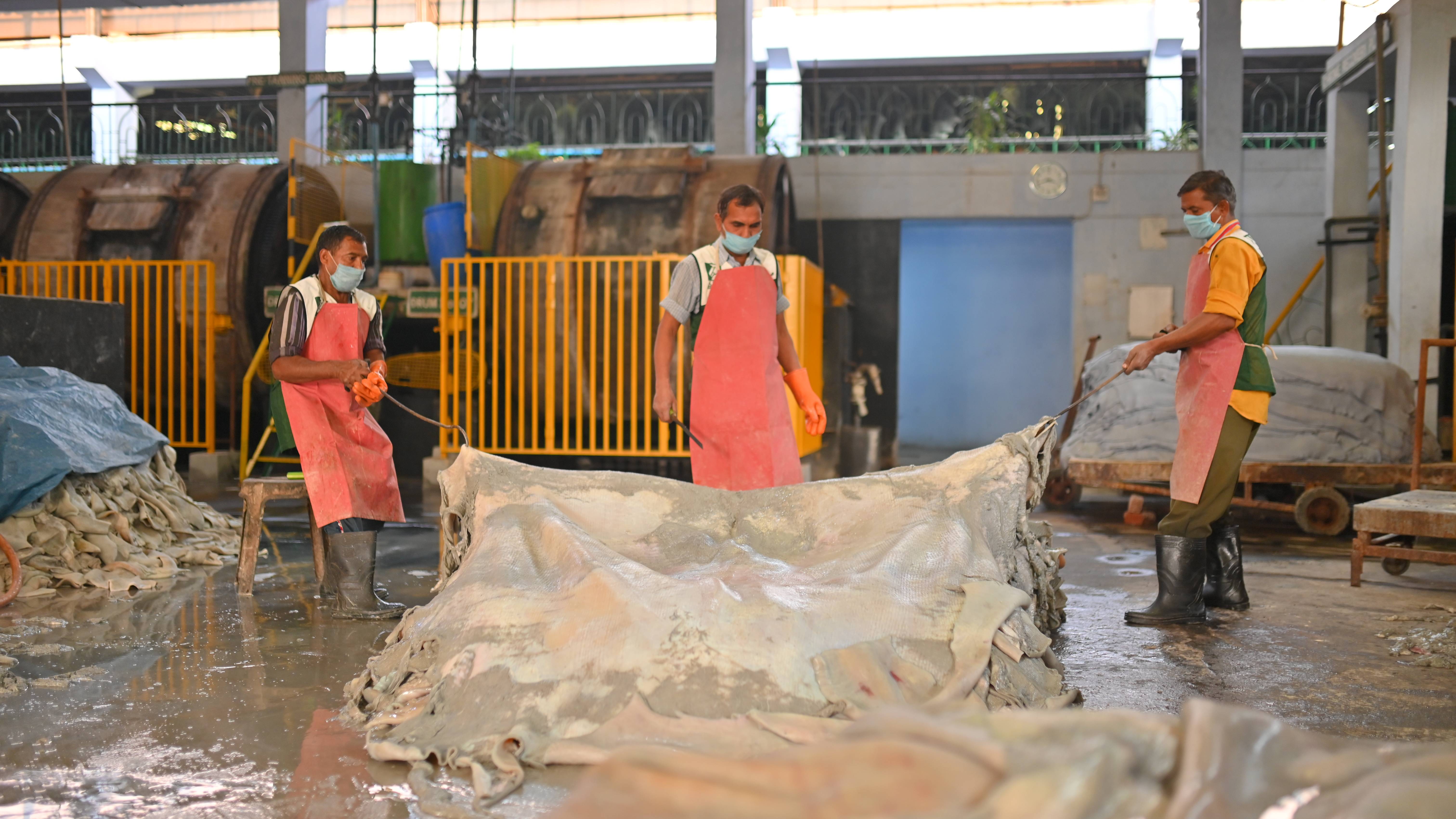
The Challenge
Leather tanning is one of the most polluting chemical manufacturing processes. While the Tamil Nadu clusters have Common Effluent Treatment Plants (CETP), high waste levels (organic and chemical) are a serious sustainability challenge to the industry. Solid waste is currently dumped at secured landfill sites. However, these are above capacity and pose serious environmental pollution and public health hazards.
The main target group of the action are 500 MSME tanning companies in Tamil Nadu, employing approximately 40,000 workers. Noncompliance with international environmental standards and more stringent pollution controls endanger the business future of these small tanners. Without significant improvements to tanning practices and waste management, many of them risk loss of competitiveness and forced closure.
A circular approach is needed that is economically and environmentally viable. This requires innovation and the adoption of profitable and scalable circular leather tanning and waste treatment practices. Concepts like “waste to value”, and its corresponding technologies, operational capacities, and equipment developed in Europe and in India for solid waste management need to be adapted to Tamil Nadu Leather clusters. Currently, MSMEs lack technical and market awareness on waste management and have limited access to funds for the required changes. Limited collaboration and knowledge sharing among clusters and companies in India is further slowing down wide-scale adoption and the creation of synergies.
The Objectives
SME tanneries in Tamil Nadu are supported by facilitating adoption of circular practices, thereby meeting international sustainability standards, promoting the production of commercially attractive “waste to value” products, and enhancing their access to finance and markets.
The overall objective of the project is to establish pilot demonstrations on circular market-based models for processing solid waste generated from leather tanning and finishing practices in the Tamil Nadu leather clusters. These pilots hold the potential to be scaled up in the long run. The project thereby enables the reduction of amount of solid waste that ends up in the open spaces/landfills, improves the public health situation for workers and people living near leather clusters in Tamil Nadu and enhances international competitiveness and market access of leather export from Tamil Nadu.
The Way Forward
- More sustainable production practices, better effluent and solid waste management and improved technical capacities of leather tannery MSMEs.
- Enhanced competitiveness of MSMEs through compliance with international market standards and creation of additional business through “waste to value”.
- Improved access to finance though business case development and liaison with financing institutions.
- For employees and surrounding communities: Reduced health and safety hazards and more job and income security; reduced public health risks and environmental hazards.
The project will include, among others, the following priority actions:
- Introduction of improved tanning and waste treatment practices and technologies;
- Creation of the capacities of SME tanneries and their industry partners for the wide scale adoption;
- Incentivization for SME tanneries to adopt the circular tanning and leather finishing practices which are linked to the value creation from solid waste;
- The support of Government of Tamil Nadu which will facilitate the adoption of these circular tanning and leather finishing practices;
- By increasing the availability of circular products in domestic and regional markets, the project also indirectly contributes to the promotion of more sustainable consumption patterns in Asia.
Relation to European Green Deal, Circular Economy and Climate Change
The project addresses EU priority issues as part of the Green Deal and Circular Economy Strategy. The overall result of the project is a significant improvement of circularity and minimization of environmental pollution. The project contributes to economic prosperity and poverty reduction as well by securing and improving employment for sector workers, improving the surrounding communities’ health; it also supports green technologies whereby solid waste is reduced and resources are used more efficiently; re-use is made possible and thereby circularity is promoted.
In addition, the project has synergies with two policy focus areas of the European Green Deal:
- Eliminating pollution: keep water streams clean and preserve biodiversity in lakes, rivers and wetlands;
- Sustainable product policy: support the circular design of all products and reduce waste significantly, especially in resource-intensive sectors such as the textile industry.
By targeting tanneries as part of the export value chain, it also considers EU Trade policy which prioritises sustainability considerations.
Duration:
2022-2025Total Budget:
EUR 2,800,323.00 (EU Contribution 80%)Lead Partners

Solidaridad Regional Expertise Centre, India
Partners


